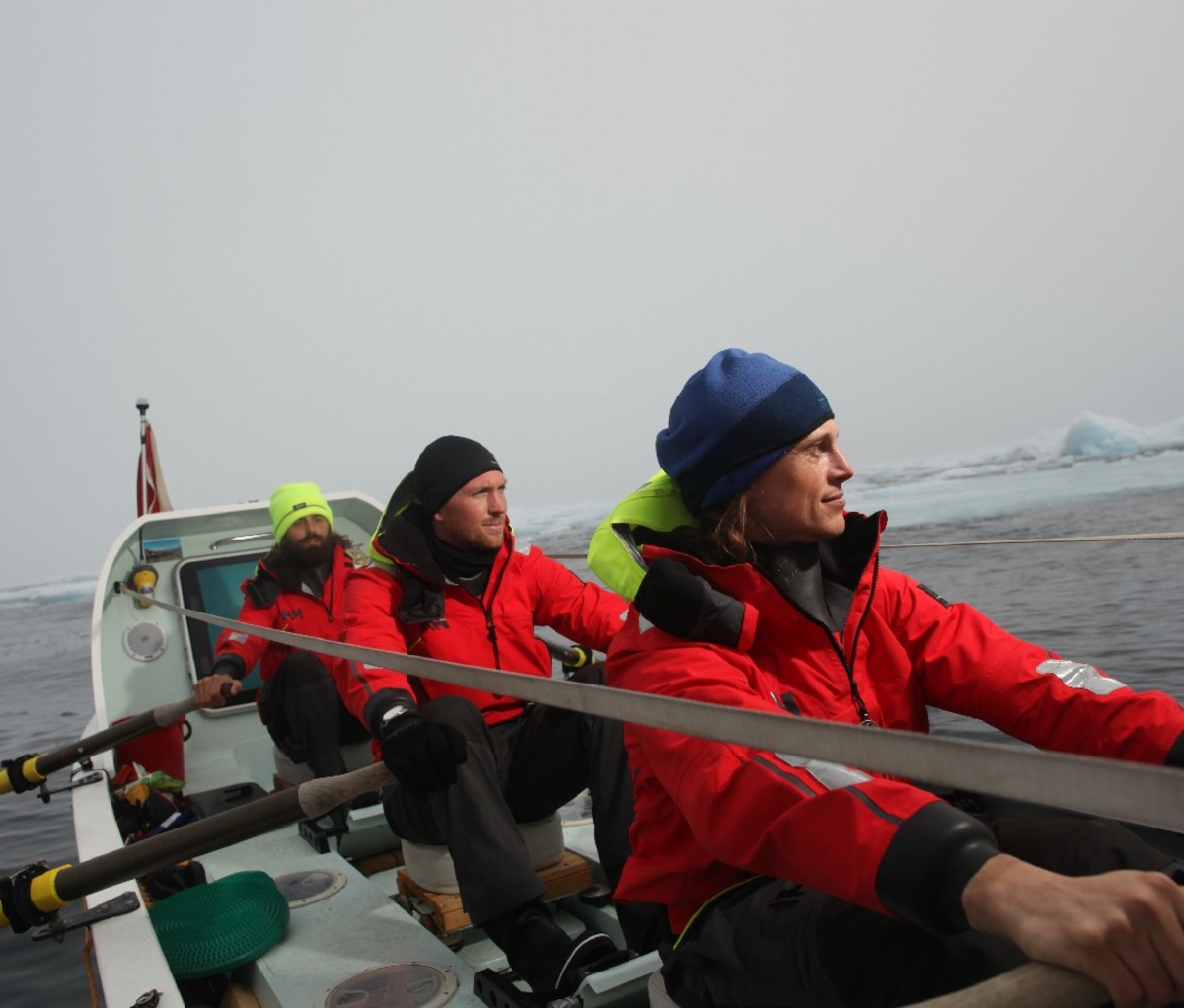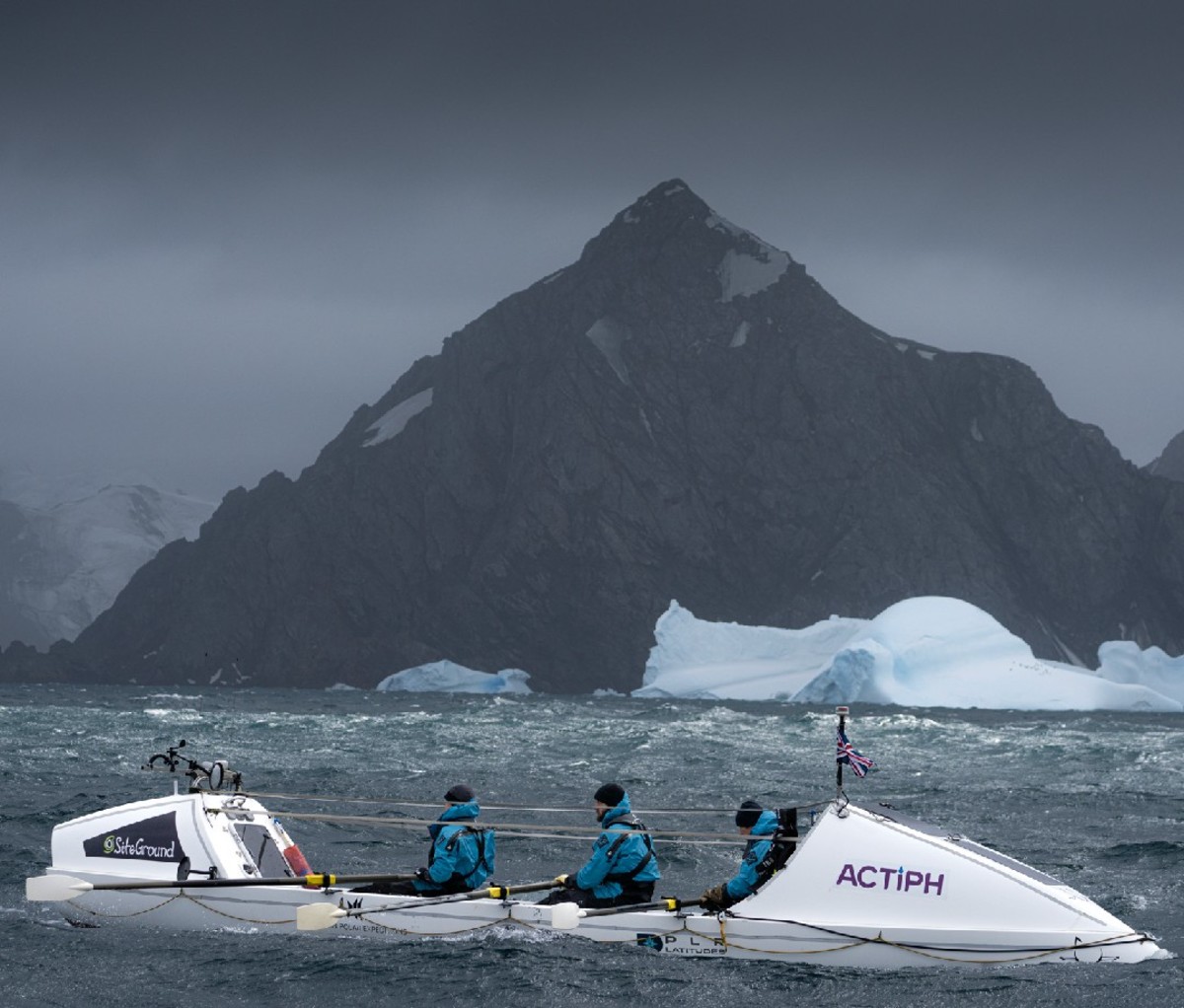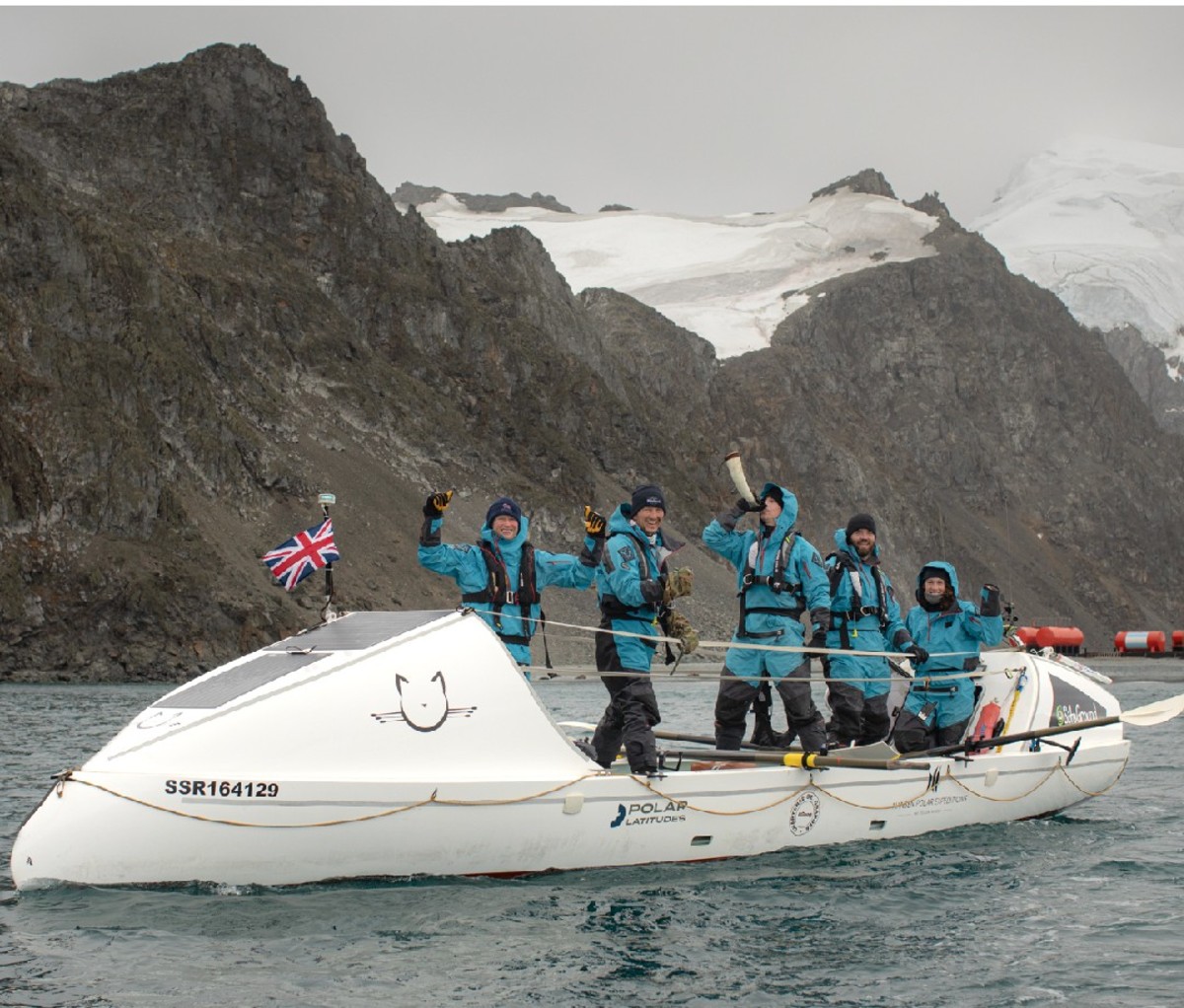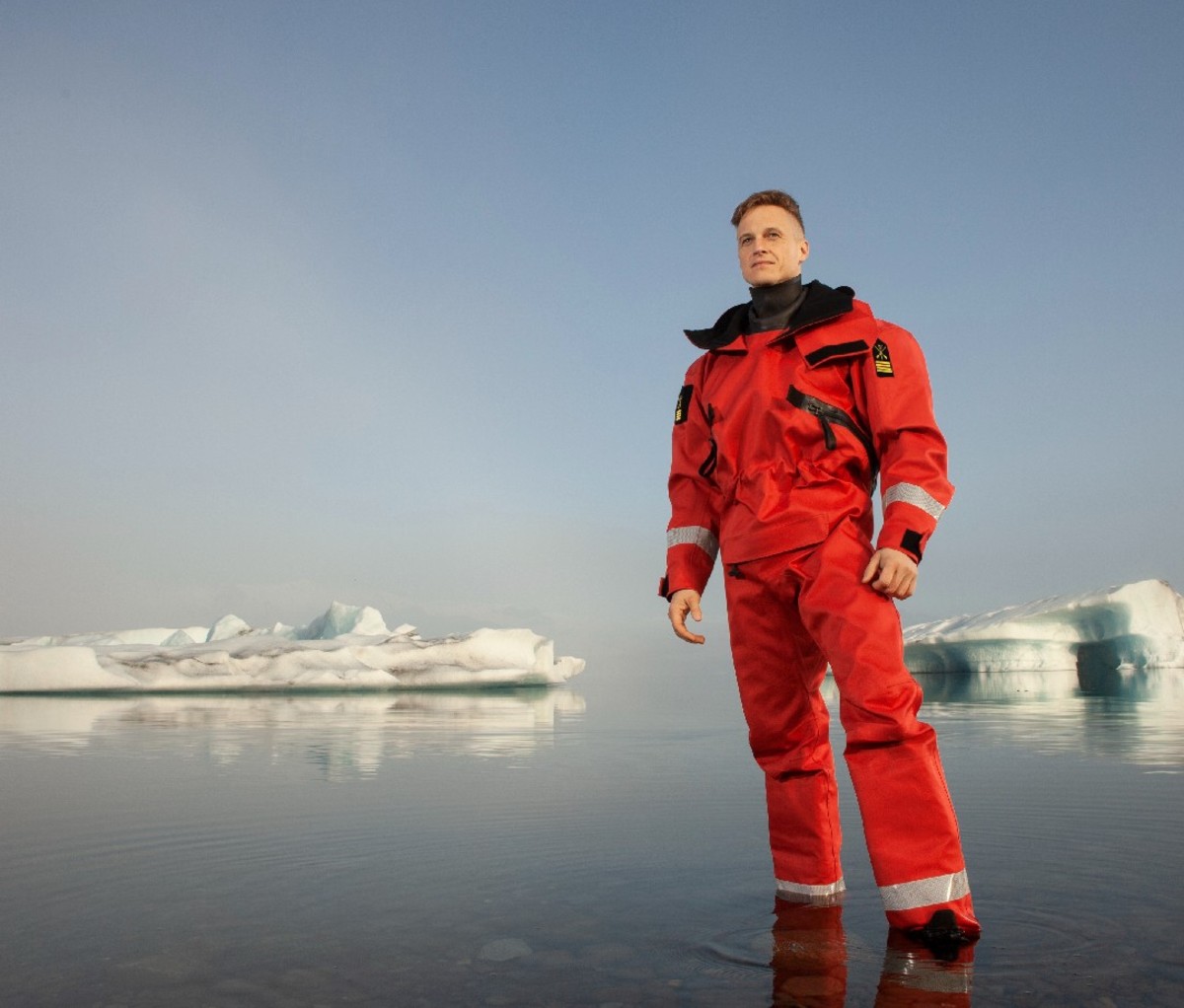Fiann Paul holds more than 14 Guinness World Records and has endured 171 days of open-water rowing in all the world’s oceans. Yet none of his previous expeditions hold a torch to the six days he just spent crossing the Southern Ocean.
“It was by far the most difficult expedition I’ve done, logistically and weather-wise,” Paul told Men’s Journal a week after completing the row. “I still have pain in my hands.”
Paul, who hails from Iceland, captained a team of six experienced ocean rowers, including Americans Dr. Mike Matson and Brian Krauskopf, Austrian Lisa Farthofer, Bulgarian Stefan Ivanov, and Brit Jamie Douglas Hamilton. They left King George Island, just off the Antarctic continent, on January 11, 2023. After six days covering 407 nautical miles, the team ended the row at Laurie Island.
“We accomplished about 80 percent of what we set out to do,” says Paul.

The team set three Guinness World Records: First to Row from the Antarctic Continent, The First Row on the Southern Ocean South to North, and First Row on the Scotia Sea. Theirs was also the most southern start to an ocean rowing expedition and the fastest polar row, averaging 2.85 knots. In addition, Farthofer became the first woman to row on polar open waters.
The legendary Shackleton expedition inspired Paul’s route choice. In 1914, famed British explorer Ernest Shackleton sailed to Antarctica with the aim of becoming the first person to cross the continent from one side to the other. But before he could begin, the sea ice crushed his ship, stranding the team on ice floes and shifting the focus to survival. After a year stranded on ice, in April 1916, Shackleton led two lifeboats on an 800-mile journey across the Scotia Sea to a whaling station on South Georgia Island. It’s considered one of the greatest survival stories and small boat voyages of all time.
Paul’s Shackleton Mission set out to follow a similar route across the Southern Ocean. And, like Shackleton, the challenges began before the team even arrived in Antarctica. First the COVID-19 pandemic delayed their departure. Then they had to get the boat—named Mrs. Chippy after a cat that accompanied the original Shackleton expedition—to Antarctica. That involved a lot of bureaucracy and sucking up to officials, says Paul. They also had to get a support boat as the Antarctic Treaty requires one to follow all small vessels in the Southern Ocean, adding more cost and complexity.

Once finally underway, life onboard was miserable. Mrs. Chippy has three rowing bays and a watertight cabin with room for the other three rowers. Rotating through 1.5-hour shifts, the team stroked 24 hours a day. When they weren’t rowing, they did their best to eat and sleep. On deck, the temperature hovered just above freezing and the view was monotonous: gray sky over gray water with the odd 25-foot wave and 35-knot gust to spice things up.
“The first 30 minutes of your rowing shift you just tried to get the feeling in your hands,” says Paul.
But it was the time in the cabin that was the hardest part. Inside, it was a few degrees warmer, but the 100 percent humidity left the walls dripping, soaking everything from clothing to sleeping bags. Nothing would dry, so the rowers had to carefully manage their effort and layering to prevent sweating. And they never changed out of their base layers or booties. The discomfort was indescribable. Paul figures he slept for eight hours over the six days.
“It was the most expensive zero star hotel,” he says. “It was really unpleasant. You just endured it.”
The uncomfortable conditions also made the idea of eating “absolutely repulsive,” which is a big problem. Food is not only fuel for rowing, but also the key to staying warm. “You eat because you have to,” says Paul. “Not because you want to.”
Despite the hardships, there were moments of wonder and enjoyment. Whales often spouted near the boat. When the sun made an appearance, the gray oceanscape suddenly transformed into a scene of vibrant colors and interesting light. One day they slalomed through icebergs that seemed to glow from within.

“It’s a phenomenon you would not imagine if you didn’t see it,” Paul says. “These moments got us out of the gloomy, zombie mode of pushing hard.”
It’s pure nature, all at once brutal and beautiful.
“Rowing on Antarctic waters was more than just achieving records,” Farthofer adds. “It gave me the opportunity to dive into a world I would have never been able to see.”
But mostly it was misery. And none struggled more than Matson. He was fine on the boat trip down to Antarctica from Argentina. Onboard Mrs. Chippy, though, he suffered from acute sea sickness. Nothing stayed down, which cut off his body’s access to calories and electrolytes, the gas and oil of the human engine. Matson couldn’t row hard enough to warm up, leaving him more depleted, making it harder for him to stay warm. He also couldn’t digest the inflammatories most ocean rowers pop to reduce the chances of an injury.
“He was the last person I expected to struggle,” says Paul. “He was willing to do his best, even though he was losing his sober mindset. There was no way he was giving up.”

Paul had to make the tough call to evacuate Matson to the support vessel. As the first mate and an engineer, the loss was more than just in pulling power. “Mike doesn’t get the accolades he deserves,” says Paul.
South Georgia was still 10 days of rowing away and the support vessel had to stay with the rowers. The only way to get Matson the medical attention he needed was to end the expedition early by beelining for the Argentinian Antarctic Base Orcadas on Laurie Island. “If we’d been in any other place, even the Arctic, many different authorities could have rushed out to help us,” says Paul. “Out there, there is literally nothing. It’s complete emptiness and openness.”

The five remaining rowers stroked Mrs. Chippy into the base on January 17 after six days at sea. According to the rules of the Ocean Rowing Society, the shortened journey still surpassed the minimum distance for a certified “crossing” of a polar sea.
Paul says the Argentinians were extremely kind and welcoming. After a couple days at the base, the navy ship Puerto Argentino took Matson, Paul, and two other members of the team to the Argentine mainland. The remaining members boarded the support vessel for the boat trip back.
The expedition was Paul’s seventh and last ocean row. At 43, his body struggles more under the strain and takes longer to recover than it used to. But the toughest struggle of all is psychological.
“I used to love the challenge of completing a hard expedition,” he says. “I feel like I’m losing the drive. I think that’s because I’ve pushed ocean rowing as far as I can. I’d have to do something beyond sanity to feel like I’m taking a step forward and not a step backward.”
His retirement will include public art projects and work as a psychoanalyst. But first, he’s working on a documentary of the Shackleton Mission. Learn more about Fiann Paul’s ocean expeditions at rowlaughexplore.com.
Learn Morefrom Men's Journal https://ift.tt/Do8JKbP





0 comments